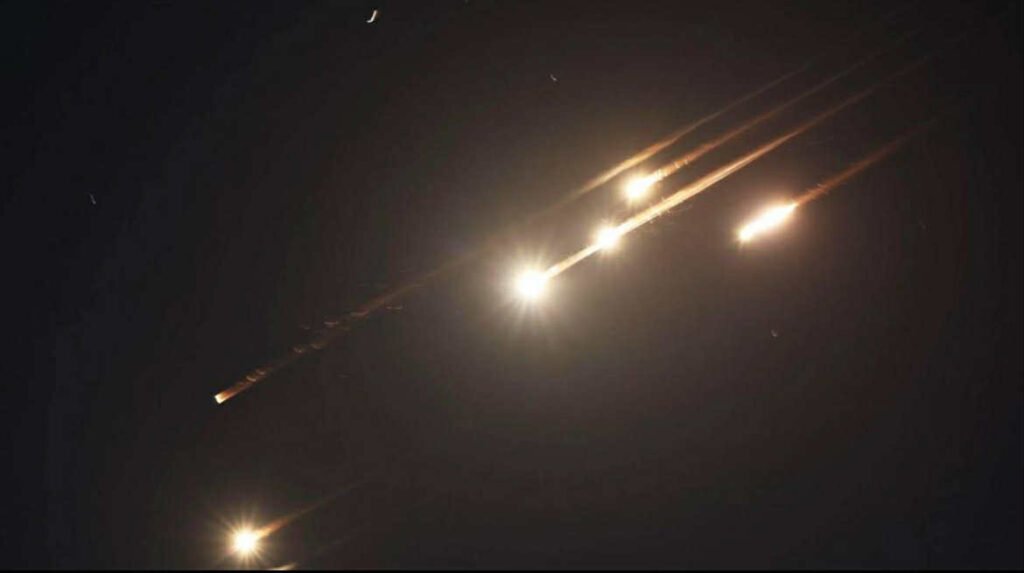By April Rodgers, Content Coordinator | FreeWire—Your News, Your Voice

Air raid sirens blared across Israel early Friday morning as the country came under heavy missile fire from Iran, marking a dramatic escalation in tensions between the two long-time adversaries. Explosions rocked cities including Jerusalem and Tel Aviv, where plumes of smoke rose over the skyline. Though the full extent of damage is still being assessed, no immediate casualties have been reported.
According to Israeli military officials, Iran launched a barrage of missiles and drones in retaliation for an earlier Israeli strike on Iranian soil—an operation that reportedly targeted the heart of Iran’s nuclear infrastructure and military command.
Israel’s operation, code-named “Rising Lion,” was a coordinated assault involving fighter jets, drones, and long-planted assets on the ground. Strategic locations were hit, including uranium enrichment facilities, ballistic missile depots, air-defense batteries, and residences of senior Iranian military leaders. Among those believed to be killed are several top commanders in the Islamic Revolutionary Guard Corps, along with multiple nuclear scientists.
Iran’s response was swift. Missiles lit up the skies, intercepted in part by Israel’s Iron Dome system, but still causing widespread panic and sending civilians into bomb shelters nationwide. Supreme Leader Ayatollah Ali Khamenei promised “severe punishment” and signaled that Iran’s retaliation is far from over.
The risk of a broader regional war is now higher than it has been in years. Leaders in nearby countries are watching closely, and U.S. military assets in the region are on heightened alert. The United Nations has called for an emergency Security Council meeting, and countries around the world are urging both sides to pull back before the conflict spirals out of control.
This sharp escalation follows years of simmering tension, with Israel repeatedly warning it would take action to stop Iran from developing a nuclear weapon. For years, the United States had worked behind the scenes to prevent exactly this scenario, fearing a single strike could trigger a domino effect across the Middle East.
What appears to have pushed Israel to act now is a mix of shifting regional alliances, ongoing fallout from the October 7 Hamas attack, and a change in the geopolitical winds after the reelection of U.S. President Donald Trump. Israeli Prime Minister Benjamin Netanyahu confirmed that Washington was briefed in advance.
The coming days will be critical. Both nations are bracing for further exchanges, and the rest of the world is holding its breath. What began as a targeted military operation has now opened the door to the kind of conflict that could reshape the entire region.

















